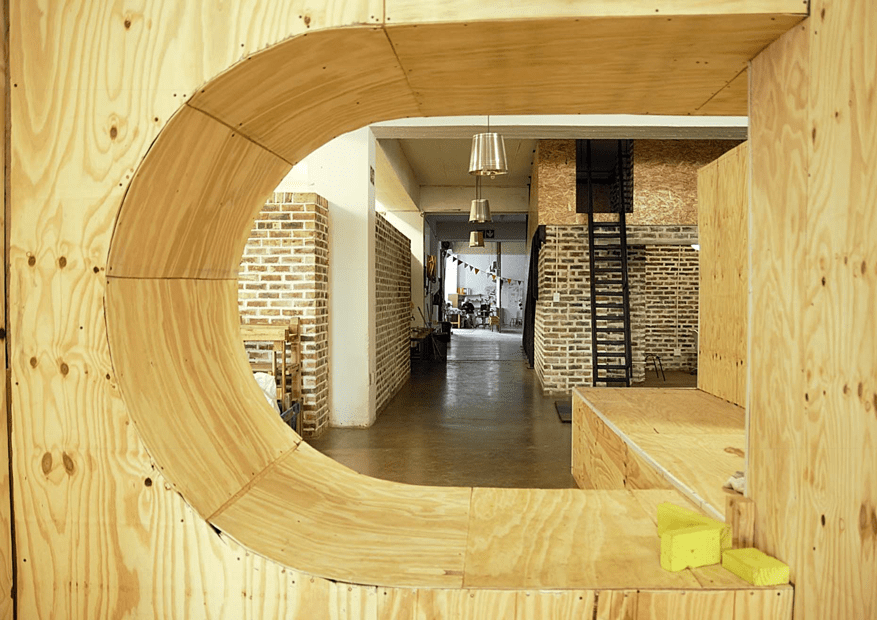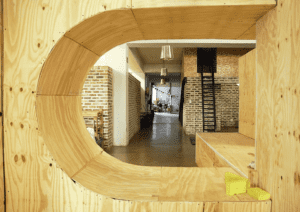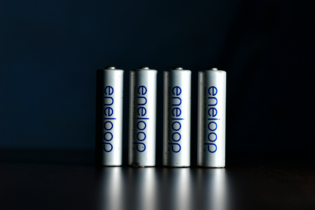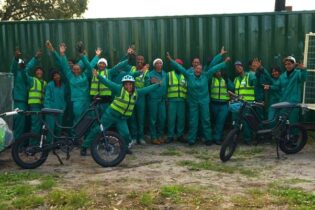
View of interior public spaces at Jeppe Park Primary. Picture: Supplied
The school is part of the non-governmental organisation, Streetlight Schools, and boasts a number of green building and sustainability focused measures. The accolade was awarded by the Green Building Council South Africa (GBCSA).
The school said its focus was on high quality, low cost education infrastructure that puts the well-being of the students first.
The naturally ventilated building has many windows that provide students with access to healthy indoor spaces. Clever use of locally sourced materials provide acoustically designed spaces such as classrooms, libraries, play and social-areas, which are suited to educational purposes.
School ground greening allows for various outdoor activities as well as the inclusion of nature as an integral part of learning and development. The use of low emission printers and photocopy equipment, low VOC compounds, adhesives, sealants and carpets reduce internal air pollutant levels.
The primary school is built on the premises of an old shoe factory in Johannesburg’s inner city. The school said its location has encouraged it to embrace the concept of upcycling, as it mostly uses repurposed and locally sourced materials and furniture.
An environmental management plan was implemented for all construction phases, and a waste management plan successfully reduced construction waste by 30%.
The school is within walking distance of Metrorail and Rea-Vaya bus stops and two taxi ranks. Its location provides alternative modes for scholars, staff and visitors to commute to and from the school and also encourages exercise.
An Occupancy and Wellness Users’ Guide has been developed to educate occupants about transport facilities, local amenities available in the area, how to use building services to its optimum potential, as well as all aspects regarding staff and student wellness.
Eco-friendly approach fosters long-term knowledge
Dorah Modise, CEO of the GBCSA said the organisation is particularly excited about this certification.
“Not only does this school bring healthy green spaces and green thinking to disadvantaged scholars, it is also starting the very necessary process of greening the education sector,” she said. “Beyond how the school was constructed, it’s also operated in an energy, water and waste efficient manner, which will go a long way towards helping these children understand that resources are finite and come at a price.”
The school has gone to great lengths to reduce their waste generation by developing and implementing an Operational Waste Management Plan and providing separation bins, food waste recycling, and ‘Bokashi’ composting and recycling waste storage areas,” Modise added. “Education of students in all areas of development and sustainability is evident when you visit the children at the school.”
Melanie Smuts, founder and CEO of Streetlight Schools said: “When the Fieldworks team and I initially designed the school, our major considerations were cost and how to create a child-friendly space in an industrial area. But it has been amazing to see how many of those same principles also lead to designing an education space that is sustainable and environmentally friendly. And our students love it.”
Working on the project was Solid Green Consulting, the Green Star and sustainability consultants. Smuts said they were innovative, but also took a budget-friendly approach to the project. She added that Architects Fieldworks Design Group were also resourceful in creating a low-cost, green design for the education facility.
“It is encouraging to see schools starting to bring environmental and sustainability measures and initiatives to the forefront of their organisation,” Modise said. “Going forward, we look forward to seeing more green transformation in the education sector in South Africa.”








